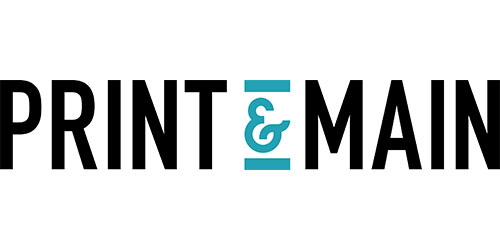I have read and repeated many times to get good at something it takes 4,000 hours of practice. To get real good it takes 6,000 to 8,000 hours and to become and expert it takes 10,000 hours of practice. Now, perhaps I have fell victim to written word without really verifying or doing a little research. I found the below article very interesting. If you want to become more proficient at something or raise the bar at your job or something or even become an expert and or want to become the greatest in your field and make a lot more money this article might be enlightening……I found it interesting and have read it over and over looking for keys to help me get better. Please read it and give me your feed back. I have a one ounce silver coin for the 53rd person to share their opinion. Enjoy and let me know what you think. I highlighted some things that I thought were provocative.
The following is an excerpt from Daniel Goleman’s new book, “Focus: The Hidden Driver of Excellence.”
The “10,000-hour rule” — that this level of practice holds the secret to great success in any field — has become sacrosanct gospel, echoed on websites and recited as litany in high-performance workshops. The problem: it’s only half-true.
If you are a duffer at golf, say, and make the same mistakes every time you try a certain swing or putt, 10,000 hours of practicing that error will not improve your game. You’ll still be a duffer, albeit an older one.
No less an expert than Anders Ericsson, the Florida State University psychologist whose research on expertise spawned the ten-thousand-hour rule-of-thumb, told me, “You don’t get benefits from mechanical repetition, but by adjusting your execution over and over to get closer to your goal.”
“You have to tweak the system by pushing,” he adds, “allowing for more errors at first as you increase your limits.”
Ericsson argues the secret of winning is “deliberate practice,” where an expert coach takes you through well-designed training over months or years, and you give it your full concentration.
How experts in any domain pay attention while practicing makes a crucial difference. While novices and amateurs are content to let their passive, bottom-up systems take over their routines, experts never rest their active concentration during practice.
For instance, in his much-cited study of violinists – the one that showed the top tier had practiced over 10,000 hours – Ericsson found the experts did so with full concentration on improving a particular aspect of their performance that a master teacher identified. The feedback matters and the concentration does, too – not just the hours.
Learning how to improve any skill requires top-down focus. Neuroplasticity, the strengthening of old brain circuits and building of new ones for a skill we are practicing, requires our paying attention: When practice occurs while we are focusing elsewhere, the brain does not rewire the relevant circuitry for that particular routine.
Daydreaming defeats practice; those of us who browse TV while working out will never reach the top ranks. Paying full attention seems to boost the mind’s processing speed, strengthen synaptic connections, and expand or create neural networks for what we are practicing.
At least at first. But as you master how to execute the new routine, repeated practice transfers control of that skill from the top-down system for intentional focus to bottom-up circuits that eventually make its execution effortless. At that point you don’t need to think about it – you can do the routine well enough on automatic.
And this is where amateurs and experts part ways. Amateurs are content at some point to let their efforts become bottom-up operations. After about 50 hours of training –whether in skiing or driving – people get to that “good-enough” performance level, where they can go through the motions more or less effortlessly. They no longer feel the need for concentrated practice, but are content to coast on what they’ve learned. No matter how much more they practice in this bottom-up mode, their improvement will be negligible.
The experts, in contrast, keep paying attention top-down, intentionally counteracting the brain’s urge to automatize routines. They concentrate actively on those moves they have yet to perfect, on correcting what’s not working in their game, and on refining their mental models of how to play the game. The secret to smart practice boils down to focus on the particulars of feedback from a seasoned coach.
From “Focus: The Hidden Driver of Excellence.” Copyright 2013 Daniel Goleman. Reprinted with permission from HarperCollns Publishers.
Ok….now give me your thoughts before you forget.
Do you want to get better?……….what then do you need to do?
Thanks for reading and thanks for hopefully responding.
sysr


My Team would probably call me old coach but I like the term used in the last sentence, “seasoned coach”. All kidding aside, even a seasoned coach like myself received inspiration and a renewed effort to grow and improve in the areas of my job that I identified in Dave Anderson’s training. Thanks as always Sir.
Rob
Loved the article. It is a good reminder to not only just put in the time to become an expert but a conscious deliberate time. If you are not being challenged or positively tweaking you are not getting better you are simply going through the motions.
Take a look at any professional tennis player to make a case for “10,000 hours” and then some! Pracice makes perfect as long as constant and continual adjustments are made. Greatness includes evaluating and re-positioning our perspectives – just because it is not broken does not mean we should rest and “accept”. Improvement requires objective and critical critique; tough, but necessary. Practice is important when we continually “tweak” our actions and behaviors.
In a lot of books I have read it states that is takes 26 days to form a new habit, 52 days to break an old habit and 90 days to become learned. In relation to the 10,000 hours if you spend 90 days and even 8 hours per day that’s only 720 hours… a far cry from 10,000. I can relate to sales and learning skills, habits and different techniques and after 17 years…and if I spent 2 hours a day on ways to improve my career, that’s only 8840 hours.. I get from this article if we want to succeed an anything it takes time, dedication and motivation coupled with HARD work to reach excellence. Thanks for sharing, it puts in perspective how hard we really need to work each day to become better.
I need more concentration and less cruise control! Thanks for the reminder 🙂
I like what Dave Anderson said about Complacency:
1. Complacency breeds lost Focus.
2. When you’re in a calm, smug state you lose your focus on the Diligent, daily disciplines that make you successful in the first place.
3. People may still be busy, but unfocused people often confuse activity with accomplishment.
This is a good personal reminder to me to give deliberate attention to whatever I’m engaged in at the moment, by not daydreaming or trying to multi-task.
My wife is a First Grade school teacher and she hates the saying, “Practice makes perfect.” Her argument is that no one is perfect even with perfect practice. I think this article only solidifies this way of thinking because even if you are considered a “master” there are still openings for holes in your performance. The concentration described in the article is the game changer in all of this. Constant attention and change to the shortcomings and mistakes is what takes you from average to better and so on.
Thank you for sharing this article. It is a great reminder on the importance of focus. I like what Rory Vaden says, “…focus is literally power. Sunlight focused enough creates enough energy to set a piece of paper on fire. Water focused enough, or streamlined enough, can cut through steel…When we have diluted focus, we get diluted results.”
My thoughts are that if you practice at the same focus and intensity as when you are ‘in the game’, results will be a natural occurring event.
Manage and practice the processes, not the results. Make changes to your practice habits based on analysis of results.
Practice like you play. Do the work early.
Practice is great for each thing you are trying to get better at, but you must switch up in order to really get better, The extra reach,the extra step, the one inch higher jump. Here at work extra calls, or extra letters, or extra nice, We must pratice at above 100% to be at 100% in day to day functions.
I like best this statement- “The feedback matters and the concentration does, too – not just the hours.” We can all practice hour after hour the same things and think we are improving, and we may be, but with that feedback we could improve leaps and bounds rather than smaller steps. ‘Work together, Rise together’- no one should feel they have to do become an expert alone!